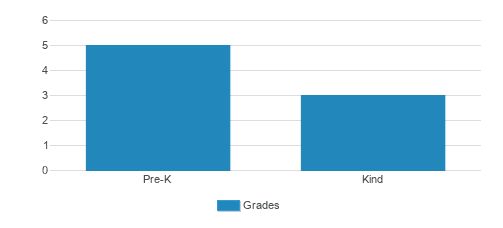Presbyterian Ear Institute Oral School was founded on the belief that many children with hearing loss can develop the ability to listen, learn, and speak.
Presbyterian Ear Institute Oral School provides an educational program in which children with hearing loss learn to communicate using spoken language.
We provide a supportive and stimulating learning environment in which children who are deaf and hard-of-hearing can grow socially and emotionally as well as linguistically and academically.
The team of professionals on campus includes oral deaf educators, speech-language pathologists, early childhood educators, special educators, audiologists, and otologists.
The team also enlists the service of other providers such as occupational and physical therapists and vision specialists.
It is the goal of Presbyterian Ear Institute Oral School to teach children with hearing loss to talk by providing an educational environment that fosters oral communication.
Our school offers an innovative teaching plan for children who use hearing aids and/or cochlear implants and provides a curriculum individualized to meet the specific needs of each child.
The small student teacher ratio of 3 to 1, combined with teachers trained in oral deaf education, ensures active student participation and high motivation.
Our goal is to ensure that all children develop their speech, language, audition, academic, and social skills to a level that will bring them success in a mainstream classroom setting and in the larger hearing world as they grow older.
Quick Stats (2025)
- School Type: Special Education School
- Grades: Prekindergarten-Kindergarten
- Enrollment: 8 students
- Application Deadline: None / Rolling
- Source: National Center for Education Statistics (NCES)
School Overview
School Type
School Membership(s)School Assoc.
Religious Affiliation
Grades Offered
Grades Prekindergarten-Kindergarten
School Calendar
Student Body
Total Students
8 students
Student Body Type
Co-ed
% Students of Color
67%
State avg.: 49%
Students by Grade

Academics and Faculty
Total Classroom Teachers
2 teachers
Student : Teacher Ratio
4:1
National avg.: 13:1
Tuition and Acceptance Rate
Admission Deadline
None / Rolling
Source: National Center for Education Statistics (NCES)
Frequently Asked Questions
When is the application deadline for Presbyterian Ear Institute?
The application deadline for Presbyterian Ear Institute is rolling (applications are reviewed as they are received year-round).
In what neighborhood is Presbyterian Ear Institute located?
Presbyterian Ear Institute is located in the Silver Hill neighborhood of Albuquerque, NM. There are 2 other private schools located in Silver Hill.
School Reviews
Endorse Presbyterian Ear Institute. Endorsements should be a few sentences in length. Please include any comments on:
- Quality of academic programs, teachers, and facilities
- Availability of music, art, sports and other extracurricular activities
- Academic or athletic awards
Recent Articles

A Parent's Guide To Understanding High School Teaching Methods
This comprehensive guide helps parents navigate the various teaching methods used in today's high school classrooms. By understanding these approaches, you'll be better equipped to support your teen's learning journey, communicate effectively with teachers, and create a complementary learning environment at home.

February 08, 2025
Social Emotional Learning: Education's Hidden SymphonyA musician's perspective on Social Emotional Learning reveals how this educational framework orchestrates success through five essential emotional competencies.

January 24, 2025
A Roadmap For Starting A Private SchoolUse this roadmap as a set of talking points with your trusted mentors and professionals to start the private school of your dreams. You're not alone. Over the years, hundreds of folks like you have had the same dream. From Quintilian to Maria Montessori to Lucy Madeira Wing, visionary educators have established schools to teach according to their beliefs and methodologies.

























